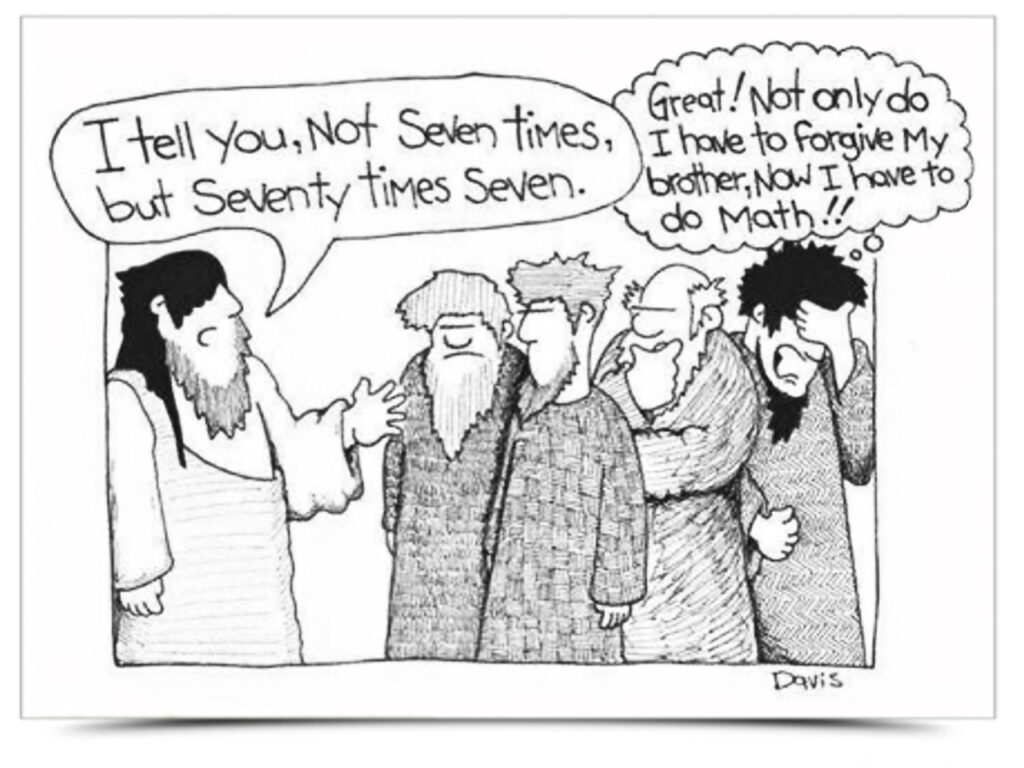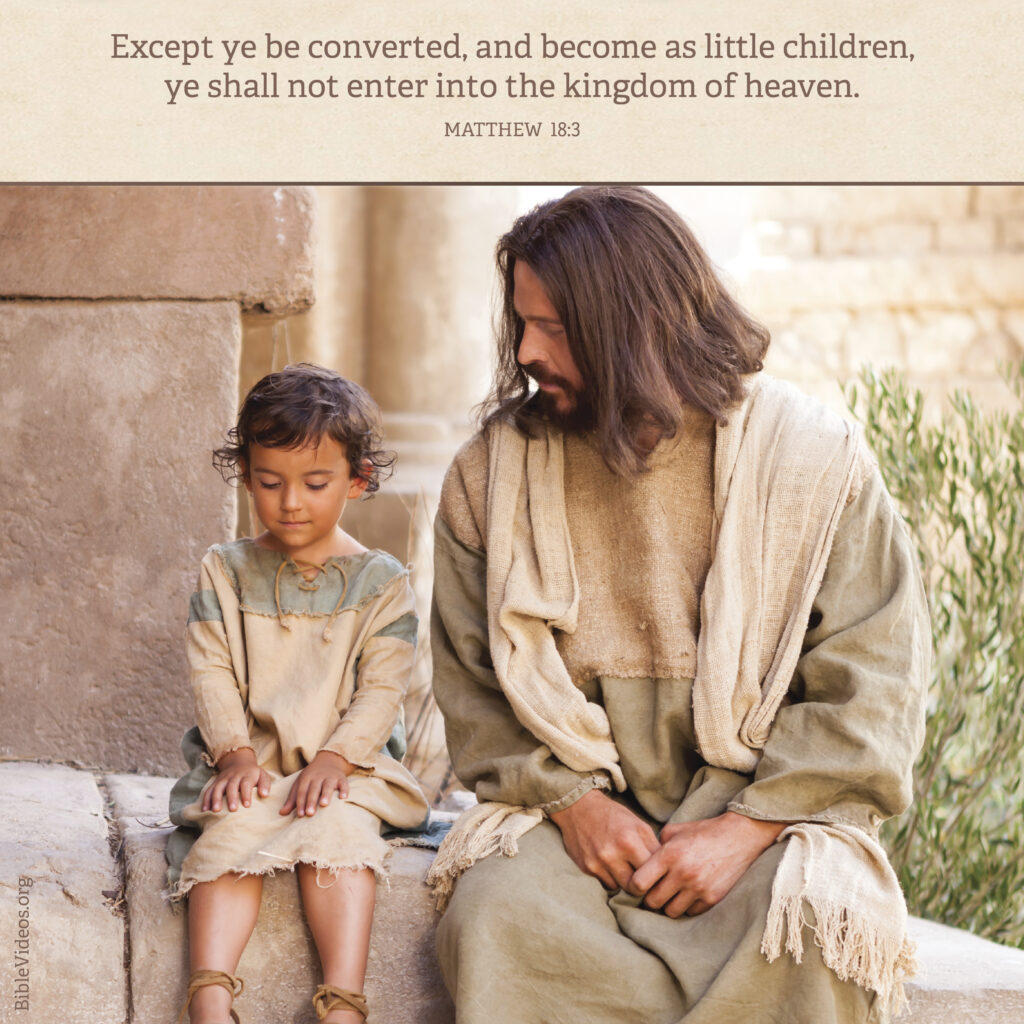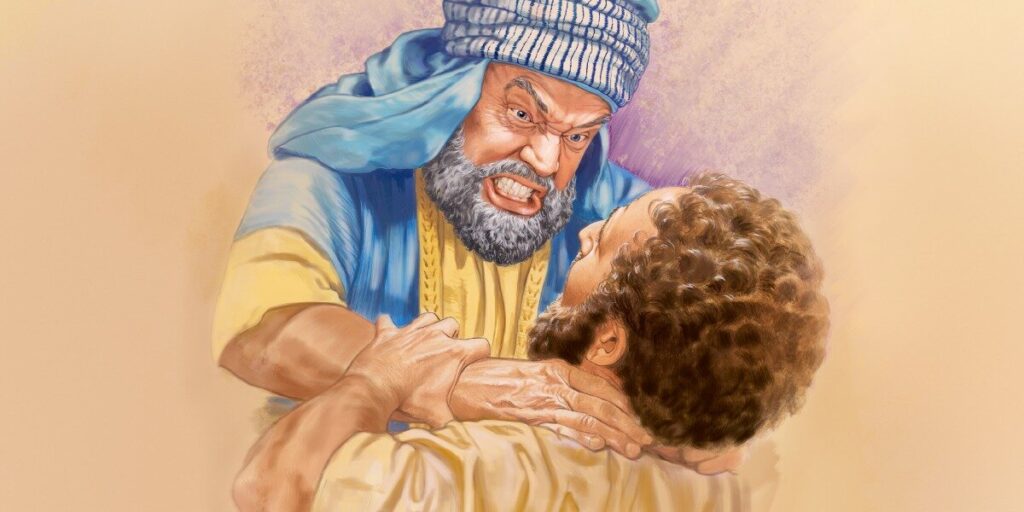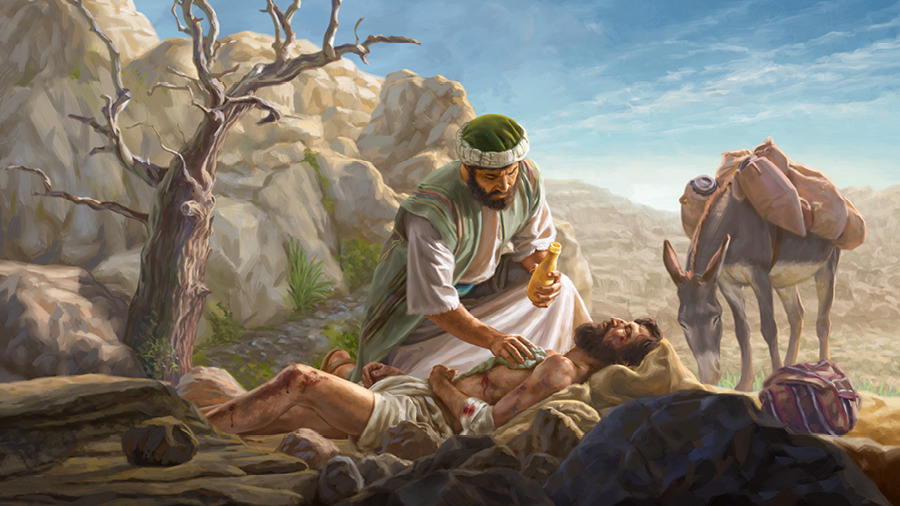To accompany your Come Follow Me study for April 17-23
In addition to reading the indicated chapters, you may wish to:
- Read the applicable portions of the New Testament Institute Student Manual at
- https://www.churchofjesuschrist.org/study/manual/new-testament-student-manual/introduction-to-matthew/chapter-6?lang=eng
- https://www.churchofjesuschrist.org/study/manual/new-testament-student-manual/introduction-to-the-gospel-according-to-st-luke/chapter-17-luke-9-14?lang=eng
- Watch the following related video segments:
- Come Follow Me (April 17-23) Matthew 18, Luke 10 | The Parable of Parables at Come Follow Me (April 17-23) Matthew 18, Luke 10 | The Parable of Parables – YouTube
- Forgive 70 Times 7 at https://www.youtube.com/watch?v=liaog6-LFpk&t=14s
- Parables of Jesus: Parable of the Good Samaritan at https://www.youtube.com/watch?v=53Pqw20xK10
- A Good Samaritan at https://www.youtube.com/watch?v=knujQ81iWjk
- The Gospel According to Matthew (from minute 2:23:32-2:31:06) at https://www.youtube.com/watch?v=woAhReBytBk&t=6494s
- The Gospel of Luke (from minute 1:48:10 to 1:57:03) at https://www.youtube.com/watch?v=2PHPLApTt7Y
If you would like a Kahoot game related to this material which you could use for personal study or use with your family or your class, click here: https://create.kahoot.it/share/matthew-18-luke-10/4cfdfe76-f101-458c-b959-a79d274e391a. (To use it with a group, after clicking on this link, you will need to log into Kahoot, creating a free account if you have not done so previously, then click on the blue “Start” button.)
Points to Ponder in Matthew 18; Luke 10
1. What answer do you think the disciples were expecting to their question of who was the greatest in the kingdom of heaven? How different was Jesus’ answer from what they anticipated?
2. Some might point out that little children often have dirty hands and faces, are noisy, and create all kinds of messes. What do you believe are the attributes of little children that Jesus wants us to adopt? Why?
3. What does Jesus mean when he says, “Their angels do always behold the face of my Father which is in heaven”? Do little kids have their own personal angels? Do adults? What additional significance do you see in your answer?

4. What specific applications can you suggest for Jesus’ teaching about leaving the ninety and nine and going into the mountains to seek that which is gone astray?

5. What situations can you suggest where Jesus’ teachings about “where two or three are gathered together in my name” would be particularly comforting.
6. What reassurance can you provide for someone who is not very good at math and doesn’t know how much 70 times 7 is?

7. How much more than 100 pence is 10,000 talents? How can you most easily find out?
8. In how few words can you summarize the essential message of the Parable of the Unmerciful Servant?
9. How do the seventy in Luke 10:1, 17 correspond to our quorums of Seventy today? What are the similarities and what are the differences?

10. What was Satan doing in heaven in Luke 10:18? When did the event Jesus speaks of here occur?

11. Why does Jesus say we should not rejoice that the spirits are subject unto us? What important additional instruction do we get from the footnote to Luke 10:20?
12. What parallels can you identify between the story in the video A Good Samaritan and the parable Jesus told?

13. Why does Jesus gently correct Martha and not Mary, when Martha was doing all the work and Mary was just sitting around doing nothing?

14. Besides the Mary and Martha story, what two other stories or examples Jesus used in this week’s reading teach us that often the most difficult choices in life are not between good and evil but between good, better, and best?
Possible Answers to Points to Ponder in Matthew 18; Luke 10
1. What answer do you think the disciples were expecting to their question of who was the greatest in the kingdom of heaven? How different was Jesus’ answer from what they anticipated?
Quite possibly each was hoping to be so designated. At the very least, they probably expected the answer to be Abraham, Moses, or Elijah, or some other past notable. No doubt Jesus’ answer that it was a little child was the exact opposite of anything they had expected.

2. Some might point out that little children often have dirty hands and faces, are noisy, and create all kinds of messes. What do you believe are the attributes of little children that Jesus wants us to adopt? Why?
The quality Jesus specifically mentions in this chapter is humility. Mosiah 3:19 also mentions the related qualities of submissiveness, meekness, patience, love, and willingness to submit to all things which their father sees fit to inflict upon them.

3. What does Jesus mean when he says, “Their angels do always behold the face of my Father which is in heaven”? Do little kids have their own personal angels? Do adults? What additional significance do you see in your answer?
Latter-day Saints definitely believe in the ministry of angels. Mormon, in some of his concluding comments, testified that contrary to what many would believe in the latter days, miracles have not ceased, “neither have angels ceased to minister unto the children of men.” (Moroni 7:29.) See also: What Mormons Know and Believe About Guardian Angels – LDS Living. The exact phrase, “guardian angels,” however appears nowhere in the scriptures. We have no details about just how such angels may be assigned: Whether the same angel or angels have permanent mandates to care for specific mortals or whether anyone from the angelic corps could be assigned to help in a case of necessity. What seems clear is that not only does God help us directly in times of need, but He has also commissioned His angels to assist Him in heaven, just as He allows us to help with His work here on earth. The additional comforting implication is that when we arrive in the spirit world, we may be given the opportunity to serve as “ministering angels” or “guardian angels” to loved ones on earth. That is likely to be most exciting to those who enjoyed being ministering elders or sisters in mortality! Certainly, this is a more appealing prospect than going to endless heavenly choir practices or forever strumming harps on clouds.
4. What specific applications can you suggest for Jesus’ teaching about leaving the ninety and nine and going into the mountains to seek that which is gone astray?
We obviously can’t be everywhere at once nor do everything at the same time that would be good to do. Parents may need to spend more time with one child at a given time in his life than with others who have less urgent needs. Ministering elders and sisters may need to comparatively neglect both the very active and the very unreceptive in order to give priority time to those assigned families who have more pressing needs and who are more open to receiving assistance. One study of the time demands on a Latter-day Saint bishop found that to do everything suggested in every handbook would require about 76 hours per week. Unless they are retired, not only bishops but Relief Society presidents, elders quorum presidents, and even parents may find that successfully fulfilling their responsibilities requires mastering the art of “selective neglect” in order to focus attention where it is most needed.
5. What situations can you suggest where Jesus’ teachings about “where two or three are gathered together in my name” would be particularly comforting.
Sometimes we worry when attendance at a class, meeting, or activity is not what we had envisioned. But the quality of the event is not dependent on the number of attendees. One of best institute classes I can remember regularly had only two or three attending each time. But the Spirit of the Lord was there, and we felt much edified. This principle also has great application to the home, where the best gospel teaching and worship often occurs, though numbers may be small.

6. What reassurance can you provide for someone who is not very good at math and doesn’t know how much 70 times 7 is?
Peter was probably in that category. Jesus, of course, was not encouraging Peter to keep a tally of how many times he had forgiven each person so he could exact vengeance after forgiving exactly 490 times. He was essentially telling him (and us) to forgive always—more for our own sake than for that of the offender.
7. How much more than 100 pence is 10,000 talents? How can you most easily find out?
Footnote “a” of Matthew 18:28 tells us that 100 pence was equal to approximately three months’ wages of a poor working man. But it tells us nothing about the value of a talent. The easiest way to find the complete answer is probably to look for the commentary on Matthew 18:23-35 in the Institute of Religion New Testament Student Manual, which explains that a “denarius” (the same as a “penny” in the King James Translation) was the typical day’s wage for a common laborer, whereas a talent was worth 10,000 denarii. It would therefore take 300,000 years for a laborer to earn the 10,000 talents mentioned in the parable—an obviously impossible sum, meant to compare with the impossibly large debt the Savior paid for each of us in the atonement compared to the very modest amount He asks of us in return.

8. In how few words can you summarize the essential message of the Parable of the Unmerciful Servant?
How about: “Forgiveness requires forgiving.”

9. How do the seventy in Luke 10:1, 17 correspond to our quorums of Seventy today? What are the similarities and what are the differences?
Obviously, they both consist of seventy men. And both groups had priesthood authority to represent the Savior wherever they were sent. But the quorums of Seventy of today are major administrative bodies. The seventy Jesus sent out probably had a significantly simpler assignment. And we have no details to confirm that these seventy were or were not sent out a second time or served on a continuing basis thereafter.
10. What was Satan doing in heaven in Luke 10:18? When did the event Jesus speaks of here occur?
Jesus is speaking of Satan when he was known as Lucifer, or “light-bearer,” in the premortal life. Until his rebellion, he occupied a position of prominence among God’s children. But at the time of the premortal council, Lucifer rebelled and was necessarily cast out, which is what Jesus is referring to here.
11. Why does Jesus say we should not rejoice that the spirits are subject unto us? What important additional instruction do we get from the footnote to Luke 10:20?
Luke 10:20, footnote “a,” refers us to D&C 50:30-34, which tells us that the righteous have power to detect and expel false spirits, but that we should not do so with “railing accusation,… neither with boasting nor rejoicing,” lest we ourselves be overcome by that same spirit. In other words, even though we are to “proclaim against that spirit with a loud voice that it is not of God,” we must do so in a spirit of humble gratitude rather than of proud triumph.
12. What parallels can you identify between the story in the video A Good Samaritan and the parable Jesus told?
- In both stories a man was injured by robbers and needed help.
- In both stories two who were supposed to be in the business of helping the needy passed by the needy man.
- In both stories the “Good Samaritan” was one on whom many would have looked down with prejudice because of ethnicity and religion.
- In both, the “Good Samaritan” went out of his or her way to help the injured man, used personal resources, and planned follow up to check on his welfare.
13. Why does Jesus gently correct Martha and not Mary, when Martha was doing all the work and Mary was just sitting around doing nothing?
Martha was doing a good thing. She was cleaning the house, preparing a meal, and generally attending to all the temporal needs at hand. But Mary, though helping with none of that, was making better use of her time by sitting quietly and taking in the spiritual teachings of Jesus. This is a lesson in misplaced priorities. It is comparatively easy to choose between good and evil. It is much more complicated at times to properly distinguish between good, better, and best.
14. Besides the Mary and Martha story, what two other stories or examples Jesus used in this week’s reading teach us that often the most difficult choices in life are not between good and evil but between good, better, and best?
The story of the lost sheep requiring the shepherd to divert his attention temporarily from ninety-nine others falls into this category. So does the Parable of the Good Samaritan. The priest and the Levite were quite possibly meticulous in their ritual duties. Maybe they really didn’t “have time” to stop while on their way to whatever appointment they were keeping. But they certainly failed the test of priorities which the Lord put in their path that day.
